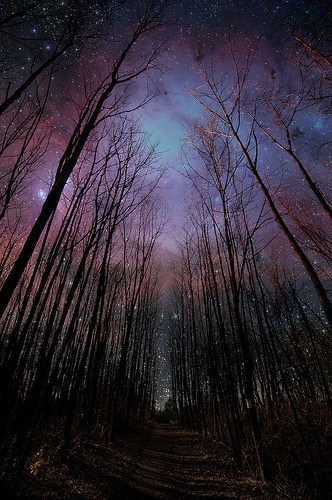The Speculative Fiction Conundrum

So, here we are, almost to Realm Makers! (I’ll let you scream as much as you want, by the way, if you’re nowhere near ready.) It’s a big deal, because this is one of the few Christian writers’ conferences that focuses on speculative fiction (that simply means sci-fi, fantasy, retellings, dystopia, alternate histories — all the stuff we can’t know for sure or may be impossible in our world). Although I won’t be there in person, my books will be there (recent drama happened related to that, so cue my own screaming). But I really hope to make it to the conference physically at some point, since I have yet to have the opportunity of attending a writing conference that takes Christian worldviews and the “impossible” stuff and combines them, without batting an eye.
I’m proud to be a spec fic writer; honestly, I don’t see it conflicting with my worldview in the real universe at all, and it actually really rankles me when other people claim the opposite. There are, unfortunately, problems with writing spec fic that go beyond the religious discussions. It can affect many aspects of your author life.
For example, I’ve had a couple of people say they “didn’t get” my work, but they simply never read fantasy (and therefore, I truly wouldn’t have recommended my titles to them). While there’s no hard and fast rule that fantasy can only be read by people who have previously read it, there simply are folks who will never pick up a fantasy genre book in their lives. And while that may hurt your feelings as an author, for the most part, it’s genuinely nothing personal. It’s all about individual taste.
Spec fic has yet to be seen as mainstream, though. No matter the number of superhero and aliens-from-outerspace movies topping the box office, how many TV shows are produced involving time travel and AI and the zombie apocalypse, regardless of the fact that names like Neil Gaiman and Terry Pratchett, Holly Black and Cassandra Clare are consistently on the bestseller lists, we’re still considered a “fringe” element of entertainment and the arts.
And tossing aside what I said about not taking it to heart, sometimes that’s tough. When it comes up in conversation that you’re an author, and people ask what you write, and you say, “Fantasy!” and they get this glazed look in their eyes. When you purposefully wait until a certain librarian is on duty to request particular titles, because you really don’t want to have to spell out every single word to the poor frazzled person at the check-out desk. (Yes, this is absolutely my life.) When you can’t watch the season premiere of a favorite show because the rest of your family is watching the playoffs for whatever sport.

So many of us don’t hold a grudge against the stuff we’re not into; we’re just bored by it, and we’d rather spend our free time analyzing what intelligent life on another planet may look like, how we’d get out of the labyrinth, or learn to cook Middle-Earth style. We don’t say to people, “Oh, my god, don’t waste your time with soccer/antiques/gardening!” Why, then, do we get such rolling-eyes, derisive-snorting, under-the-breath-laughing responses when we admit what our interests are?
It’s why lots of us are willing to travel hundreds of miles to attend a conference with tons of other people we’ve never met, just to be around folks who feel like friends within minutes, when you can simply walk up to somebody else and compliment their Star Trek shirt, and you spend the next 2 hours having coffee with them.
As a spec fic artist of any sort, you can sometimes feel isolated from the rest of your community. Thank God for Twitter, because I found a whole bunch of Christian geeks, before I even knew such a thing existed! And since my local library hired a staff member who watches/reads most of the stuff I do, I truly feel like my immediate social circle is widening. And though there are plenty of very valid reasons I won’t be able to go to Realm Makers, I do still wish I could — because I would, for once, feel at ease extroverting.
Occasionally, we can’t even win with the “mainstream” spec fic folks — the ones that feel faith and spiritual practices are ridiculous. Not that this covers all of them, not by a long shot. But indeed, the blending of Christian beliefs and fantasy or sci-fi or dystopia is a relatively new thing. Too many well-meaning people of the Church felt it was necessary to do away with superstitions and folklore throughout the centuries, until the idea of otherworldly creatures and dimensions and physics were reduced to Disney films. (This perspective also told agnostic/non-believing SF people that there was no room for God in their art, which has been just as damaging.)

I take issue with so much of this, and I know I’m not alone. So, yes, we can all band together, and hopefully work through our own differences about religion and politics (the unmentionable subjects), and maybe, one day, the entire spec fic community will be on the same page (yes, pun intended).
Especially since Christian SF authors and artists have a lot of valuable stuff to contribute. We can encourage people to think about God, about society, about laws, morals and traditions in a very different way to those who write/draw/act/produce media minus a faith/spiritual-based foundation. We should be invited to the table, to openly debate philosophy and ideology, science and legend. Nor should we receive backlash from churchgoers for including magic and myths and fairytales in our works that also search for God and Heaven.
And we should be promoted just as much as non-SF artists. We shouldn’t get relegated to the back of the metaphorical room simply because of what we write or read or watch. We should have the chance to reach just as many people as our mainstream counterparts.

I’m facing this quandary right now as I attempt to fix/work more on How To Be A Savage. It’s a completely contemporary piece (one of my very few), and there are days when I know I just can’t. I have to write about unicorns and mermaids and poohkas that afternoon.
It’s important for me to write HTBAS in a “real world” vein, since it’s addressing serious topics in the real world, and I want to make an impact on these things that I feel are necessary to hash out, for the sake of our children and future generations. Sometimes we can’t run off to a distant galaxy to do this (as much as we’d like to, myself included).
And I already know (without running a poll or anything) that this Own Voices novel will interest more people than my fantasy series. There are folks who won’t hesitate to pick up HTBAS, and have never heard of The Order of the Twelve Tribes. And all of this is hard for me not to take personally.
Yet, my goal for Savage is to educate people about autism, on a broader scale than my autistic characters in Volumes 1-5. There are different standards, different expectations — of my own making.
As I said, the conundrum.

Daley Downing's Blog
- Daley Downing's profile
- 36 followers



